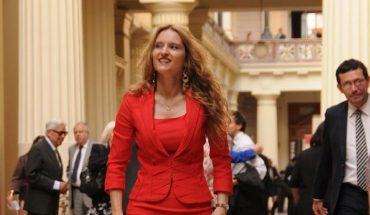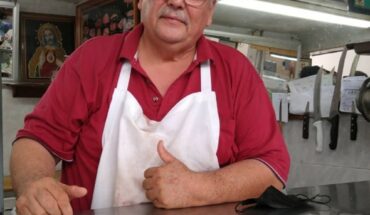President Javier Milei visited Mirtha Legrand’s program together with Security Minister Patricia Bullrich to defend the mega-decree of adjustment that he published last Thursday, in which he repealed more than 350 laws and modified another hundred. There he assured that 60% of the adjustment he had to make, according to him due to the deficit left by the previous administration, “this time is paid by the public sector.” There is no money, they have plundered the country, they have left a truly pitiful situation. They have left us with a consolidated fiscal deficit of 15 points of GDP, 5 points in the Treasury, 10 in the Central Bank…”, Javier Milei began his presentation after Mirtha Legrand asked him if “there is money”. He went on to insist that Alberto Fernández’s government left the country “on the brink of what could be the worst crisis in history” and argued that in his opinion this is due to negative economic and social indicators. “There was an excess of money on the street equivalent to what there was before the Rodrigazo, we have social indicators that are worse than in 2001 and a balance in the BCRA worse than that of the one prior to the hyperinflation of Raúl Alfonsín,” he said. In this way, the stabilization program, which included the mega-decree of necessity and urgency, would be, according to Milei, due to the situation he inherited from the previous administration. “We were forced to carry out a very tough stabilization program, involving a fiscal adjustment of 5 points of GDP. It is the first time in history that it is not paid entirely by the private sector, but 60% of the adjustment this time is paid by the public sector,” said the president-elect with 55.65% of the votes. We are sure that if we manage to maintain the DNU, it will be positive because the key to a stabilization program depends on the fact that the increase in savings generated by the adjustment is matched by investment. What this DNU aims at is that there will be an investment shock, as a consequence of a shock of freedom that we have given in that DNU, to remove regulations, give more freedom to individuals and put an end to the kiosks of the corrupt of the Argentine caste,” Milei added. Legrand asked Milei “what have they done with that money,” if they took it, to which the libertarian economist replied “some took it, others have it under the mattress.” He added: “All this is very serious, those who have stolen have to pay for it, but we have to look forward. We can’t govern by looking in the rearview mirror.” The president’s speech about “not looking in the rearview mirror” regarding corruption cases is not the first time he has appeared, since in his inaugural speech he stated that he “would not prosecute anyone,” a nod to something that did happen in the past. And although in that sense he does not look back, in economic matters he returns all the time. Javier Milei: “All state companies must be closed”For Javier Milei, state-owned companies should not exist because “the state does not have to participate in the economy”. In this sense, he explained that the DNU, beyond the fact that it converts the last state companies into corporations, so that they can pass into private hands, also opens the door to “that they be delivered to employees.” In that context, he argued that “there is an anti-boycott clause, because the unions may want to block it. With only one who wants it, he can keep it” and explained that “it happened to us with the case of Aerolíneas that a trade unionist in a rude and arrogant way did not like the proposal”. In that order, he added: “Why do we have to sustain Public TV when we have children dying of hunger” and said that the employees of Télam “were angry” so he proposed that they could “give the company to the people and let them manage it, to see what they do”, ironically stating that it would not be a viable company. He also gave his moment to Public TV and stated that “it was used as a propaganda mechanism” and affirmed that “75% of the political discussion on that channel was to dirty a candidate”, which would be him. For his part, Bullrich also lashed out at Télam, a company that during the government of Mauricio Macri had a 40% cut in its workforce. “Reuters, the largest company still in existence as an agency, has 200 employees worldwide. Télam has more than 1,000 in a single country,” he said, without giving details or sources of the figures he enunciated. Today the agency is Twitter,” said the official, comparing the state news agency with the social network, which is currently called X. “All the important agencies closed,” Bullrich said, mentioning among them the Diarios y Noticias agency (DyN), which closed in 2017 during the government she was part of, and the Noticias Argentinas (NA) agency, which remains active and this year celebrates 5 decades in office.” All the private agencies closed DyN, NA, there are no more agencies, the only one that exists is that of the State,” said Patricia Bullrich.
Javier Milei with Mirtha Legrand: “60% of the adjustment this time is paid by the public sector”
December 25, 2023 |





